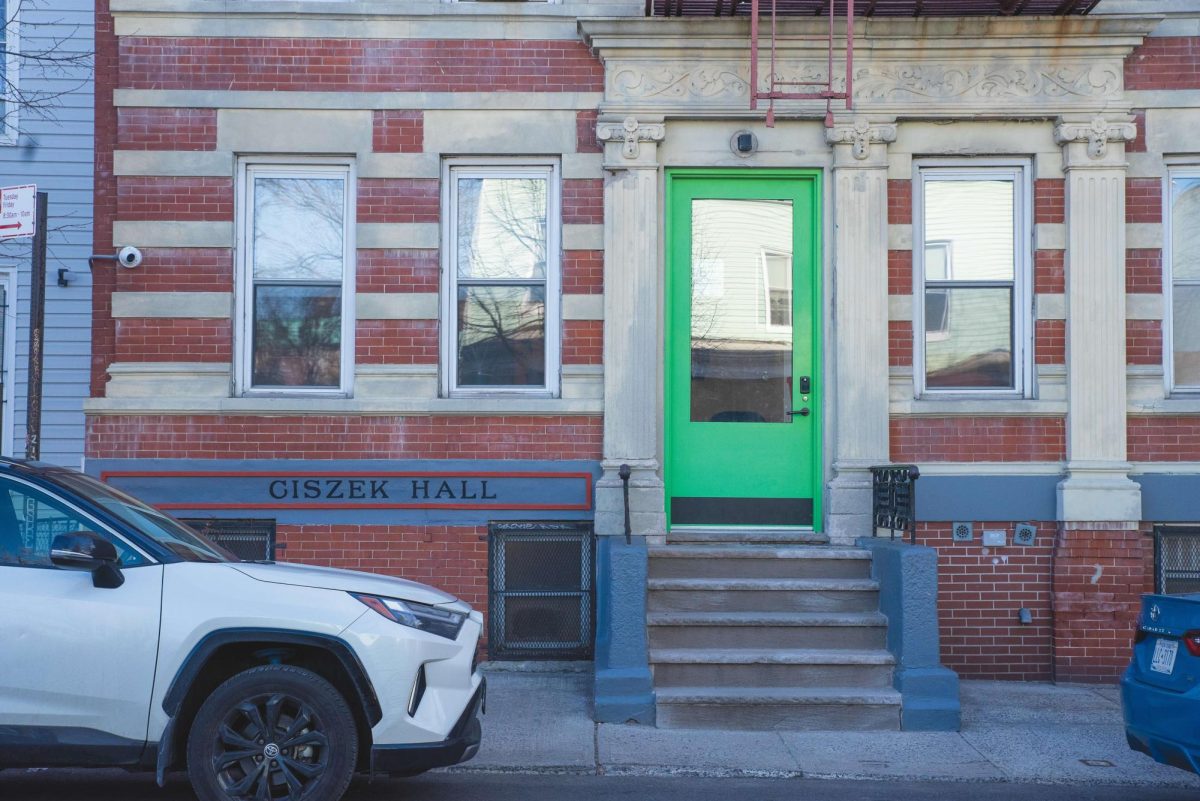“I have followed closely the major crisis that is taking place in the United States with the initiation of a program of mass deportations,” Pope Francis wrote in a letter to the Bishops of the United States on Feb. 10. “The rightly formed conscience cannot fail to make a critical judgment and express its disagreement with any measure that tacitly or explicitly identifies the illegal status of some migrants with criminality.”
The letter constitutes a scathing theological and moral critique of President Donald Trump’s rapid deportation of thousands of undocumented migrants in the first weeks of his second term. Catholic scholars and leaders have interpreted the letter as a call to action in defense of vulnerable migrant communities.
Some Jesuit organizations answered the call. Andrew Hanson-Quintana, assistant director of communications for the Ignatian Solidarity Network, said the letter’s message to the bishops is clear.
“I see Pope Francis’ letter to them both as an affirmation of those who have done the defending and also a call to those who have stayed silent to basically say ‘it’s pretty clear what we got to do, start doing it,’” Hanson-Quintana said.
“Christian love is not a concentric expansion of interests that little by little extend to other persons and groups.” Pope Francis
In the letter, Francis denounced deportations of migrants as violating the human dignity of society’s most vulnerable populations. Such a violation, Francis wrote, subverts the very basis of civil society.
“An authentic rule of law is verified precisely in the dignified treatment that all people deserve, especially the poorest and most marginalized,” Francis wrote.
The letter in part rebukes Vice President JD Vance’s claim that Catholic theology supports a hierarchy of care where one’s obligations are first to their family and extend incrementally to their neighbor, community, countrymen and finally to the rest of humanity. Francis was clear in his disagreement.
“Christian love is not a concentric expansion of interests that little by little extend to other persons and groups,” Francis wrote. “In other words: the human person is not a mere individual, relatively expansive, with some philanthropic feelings!”
The explicitly political nature of Francis’ letter is not unusual, according to David Gibson, director of Fordham’s Center on Religion and Culture. Gibson said Francis’ faith compelled him to speak out.
“All theology is political,” Gibson said. “For Christians and for Jesuits, we have such a focus on the preferential option for the poor, for migrants and for the marginalized. This is a moral and not just a religious commitment.”
David Gibson attributed the use of Catholic teachings in the letter to Francis’ experience as the first Jesuit to become pope.
In Francis’ urgent call to the defense of migrants, Michael Tunney, assistant for higher education at the U.S. East province of the Society of Jesus, sees the Catholic Church at its best.
“I think the Catholic social teaching and what Francis is speaking out of is the very best of what the Catholic Church has to offer, not in terms of proselytizing or trying to convert people, but in engaging the world, all the world’s cultures and contributing to the common good,” Tunney said.
Gibson attributed the use of Catholic teachings in the letter to Francis’ experience as the first Jesuit to become pope.
“The Pope is a Jesuit, the first Jesuit in history. He’s a Jesuit through and through, and he’s speaking from that formation and with those priorities, and I think those are very much shared by Fordham and other Jesuit institutions,” Gibson said.
Other Jesuits recognized Jesuit teachings in Francis’ letter, including Nicholas Napolitano, a Fordham alum and assistant for justice, ecology and reconciliation at the U.S. East province of the Society of Jesus.
Napolitano recognized “accompaniment,” the practice of building relationships with vulnerable people, in the spiritual foundation of Francis’ call to action. Accompaniment is one of four Universal Apolistic Preferences, which were articulated in 2019 to guide the Jesuit mission until 2029.
“This is an essential thing for each of us to do, to come to know in an authentic way people who are newly arrived to our country.” Nicholas Napolitano
Napolitano wrote in an email that accompaniment uplifts individuals when it builds bonds but also empowers people to take collective action against marginalization.
“This is an essential thing for each of us to do, to come to know in an authentic way people who are newly arrived to our country,” Napolitano wrote. “It creates space for our hearts and be opened and transformed, and it gives us strength, courage and purpose to not turn away from the difficult conversations and policy work needed to transform a broken and inhumane immigration system in our country.”
Jesuit scholars at Fordham’s Ciszek Hall Residential College practice accompaniment at Fordham in the form of direct support to marginalized communities. Their programs include job safety training and English language classes for migrant workers through the Catholic Charities Day Laborers Program. Kevin Yonkers-Talz, director of praxis-based learning at Ciszek Hall, wrote in an email that Jesuit scholars learn from the people they help.
“This accompaniment-based approach allows our Jesuit students to prayerfully listen to people’s stories, recognizing their struggles, hopes, and dignity,” Yonkers-Talz wrote. “As a result, they gain deeper insight into how faith and justice intersect in daily life.”
Yonkers-Talz added that the Pope’s letter was needed at this moment while the Trump administration’s deportation policies have unsettled communities in the Bronx.
“We are keenly aware that many in our neighborhood are experiencing heightened anxiety and fear, particularly in response to current migration policies. Pope Francis’ words, while challenging, are deeply consoling to those affected,” Yonkers-Talz wrote.
Members of the Trump administration reproached Pope Francis for the letter. U.S. Border Czar Tom Homan told a group of reporters that the letter was an overreach of Papal authority.
“I wish he would stick to the Catholic Church and fix that and leave border enforcement to us,” Homan said.
Gibson sharply disagreed with Homan’s comment.
“He basically told the Pope to ‘mind his business, he should just do the work of the Church,’ which is just wrong and ridiculous on so many levels. This is the work of the Church and it is not partisan, it is just the work that the Church does,” Gibson said.
“What is built on the basis of force, and not on the truth about the equal dignity of every human being, begins badly and will end badly.” Pope Francis
Jesuit officials acknowledged the possibility that the Trump administration could target Jesuit and Catholic schools in a manner similar to how it has targeted institutions over diversity, equity and inclusion policies or pro-Palestinian protests. Tunney said Jesuit institutions were preparing for such an eventuality.
“There is concern, obviously, most especially concern for our students and their families, our faculty and staff on our campuses as well,” Tunney said. “I know there’s risk management assessments that are taking place on our campuses now to include the possibility of these kinds of actions by the government.”
Gibson said that a confrontation between academic and religious groups and the federal government could be a matter of time.
“The critical marker is what happens if, and to be realistic when, the Trump administration ignores what Pope Francis says and ignores what the bishops are asking and they invade campuses and church sanctuaries,” Gibson said. “At what point will church institutions and institutions of higher education have to stare down or confront officers of the federal government?”
Pope Francis included a warning for the Trump administration if they choose to ignore him.
“What is built on the basis of force, and not on the truth about the equal dignity of every human being, begins badly and will end badly,” Francis wrote.
Gibson said the urgent need for action creates a “teachable moment,” when the Jesuit mission can be communicated and realized through action.
“This is when you platform your Jesuit identity and say, ‘this is what we’re about and this is what we are committed to.’ It’s also a moment to educate our community but also others about why we’re committed to these things,” Gibson said.
Yonker-Talz wrote that Fordham students can join the work at Ciszek Hall by volunteering at the Belmont Catholic Community Center or joining the semester-long Arrupe Accompaniment Program, which launched this semester. Hanson-Quintana said the Ignatian Solidarity Network supports students with insecure documentation status through the Undocu Network.


